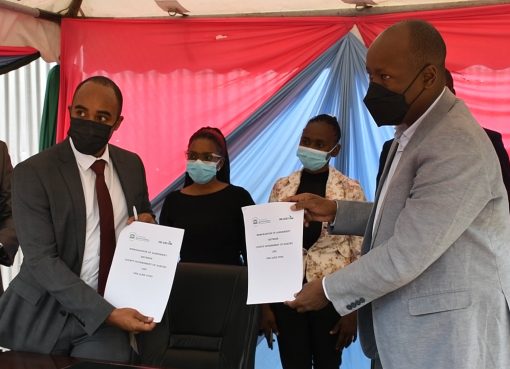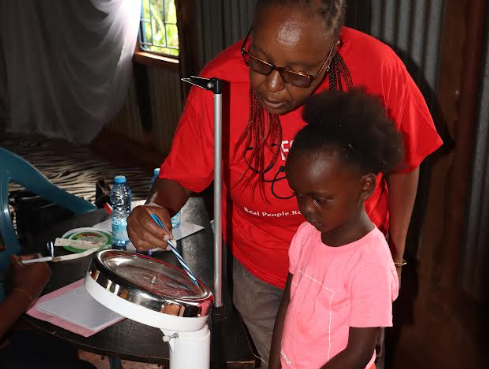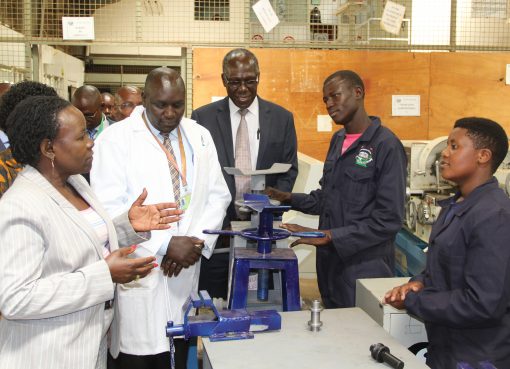Chillie exporters have been grappling with the presence of False Codling Moth (FCM) pest that is endemic in Africa and classified as widespread in Kenya.
Kenya has over the years successfully exported green and red chilies to the EU, UK and Middle East markets but from 2014 to date there has been significant number of interceptions of the Kenyans chilies consignments due to the FCM

Okisegere Ojepat, CEO of the Fresh Produce Consortium of Kenya said today that FCM requires an integrated approach across all stages of the value chain and the involvement of all to ensure the Kenyan chilli exporters and growers are not put out of business.
Exporters in Kenya, he said, are seeking for new market following the European Union restrictions due to the presence of the FCM noting that the industry is currently opening up new markets, and there is now notable demand from the Middle East and Korea.
The CEO who was speaking during a media briefing on the state of chili exports in Kenya and the available opportunities in this value chain noted that whereas there is an improvement on the number of the chillies exported between 2019 and 2020, pricing was also comparatively low because of the advent of the coronavirus pandemic.
“The pandemic has caused a lot of offloads of chilli consignments which also caused loses for chili exporters,” he said adding that fresh export statistics released by the Horticultural Crops Directorate shows 2019 saw around 1.2 million kilogrammes of chilies exported at Sh 244,684,534 while in 2020 around 1.9 million kilogrammes of chillies were exported at Sh 553,563,058.
He however noted that improvement on the volume of the chillies exported between 2019 and 2020 is also attributed to the shift of orders from Uganda to Kenya after Uganda imposed a self-ban on chilli export due to the pest and this saw a shift of trade for the chili market from Uganda come to Kenya.
Ojepat said following the increasing number of False Codling Moth interceptions of chili consignments to the EU and UK, there is need to have set a joint multi-stakeholder approach in the chili value chain to address this challenges and enable exporters to thrive in their businesses.
The Kenya Plant Health Inspectorate is currently pushing for adoption of a Pest Free Place of Production-(PFPP) under the revised EU regulations (2019).
Ojepat explained that the move is to the detriment of chili exporters because it is expensive to SMEs and has not borne any meaningful results since its implementation.
“Since the PFPP is not a mandatory requirement, growers should be allowed to choose options that suit them as long as they meet the UK and EU requirement of pest free products,” he said.
He added that besides the challenges the chilli exporters are facing in the international scene, there are other internal problems which, if not checked, will affect the expansion of the industry and affect businesses.
“The chili industry is a source of livelihood and employment to a number of Kenyans and a notable source of revenue for the government, and it is our hope that these issues are going to be addressed to keep our exporters in business,” said Ojepat.
The CEO said that clear policy guidelines that spell out the mandate of KEPHIS and Horticultural Crops Directorate in relation to inspection of consignments at the airport are needed.
“As it stands now there are instances where they overlap and this puts exporters at a disadvantage on the volumes of exports that are to be determined by HCD and not KEPHIS.
Ojepat further said that exporters need to get prompt feedback on their authorization of shipments once farm audits have been conducted saying that the protracted delays they have been experiencing forces them to either sell products locally at throw away price or destroy them.
Ojepat said in order to address all this challenges, there is need for harmonization between the inspectors of the KEPHIS head office and those at JKIA as far as inspections and audits are concerned.
By Wangari Ndirangu





